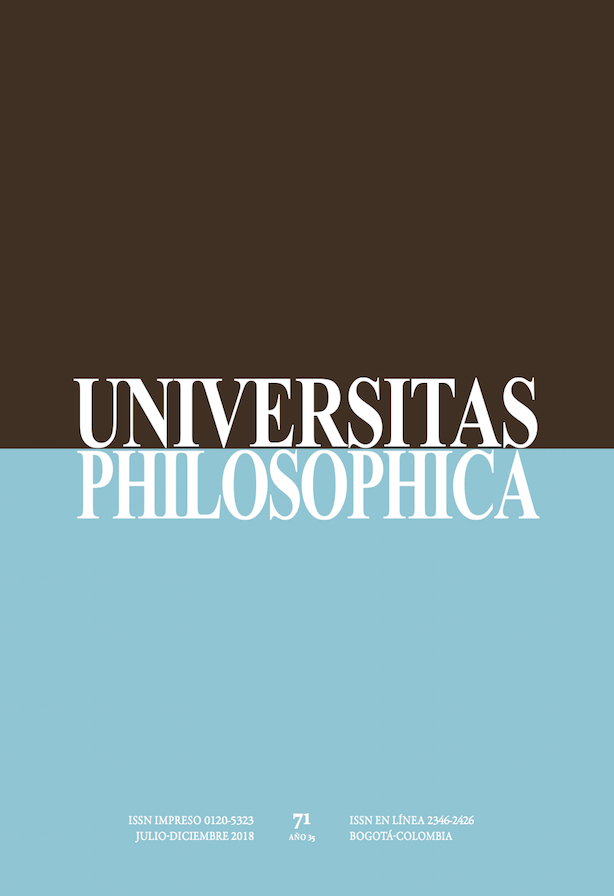Abstract
This paper presents a reflection on subjectivity in the context of consumer society, discussing two alternative approaches: on the one hand, the iden- tification between subject and commodity, traceable, among others, to Bauman, and, on the other hand, Žižek’s interpretation of subjectivity as an emerging surplus of the conflict within the symbolic order. The result- ing exchange between these alternatives shows the constitutive relations of the subject of consumption in the dimension of desire, in the margin of freedom, and in the role of reflexivity. Finally, the understanding of the relationship between the subject and the material world is proposed as a constructive performativity of subjectivity.
Bauman, Z. (2010). Vida de consumo. Buenos Aires: Fondo de Cultura Económica.
Benjamin, W. (2004). El libro de los pasajes. Madrid: Akal.
Boccardi, F. (2010). La performatividad en disputa: acerca de detractores y precursores del performativo butleriano. Aesthethika. Revista Internacional sobre Subjetividad, Política y Arte, 5(2), 24-30.
Butler, J. (1999). Performativity’s Social Magic. En: R. Shusterman. (Ed.). Bourdieu: A Critical Reader (pp. 113-128). New Jersey: Wiley.
Butler, J. (2009). Performatividad, precariedad y políticas sexuales. AIBR. Revista de Antropología Iberoamericana, 4(3), 321-336.
Chaparro, A. (2006). La premodernidad. Sujetos, sujeciones y procesos de subjetivación. Cuestiones de Filosofía, 8, 15-29.
De Certeau, M. (2000). La invención de lo cotidiano. Artes de Hacer (Vol. I). México: Universidad Iberoamericana.
Deleuze, G. (1991). A philosophical concept... En: J.-L. Nancy, E. Cadava, & P. Connor. (Eds.). Who comes after the subject? (pp. 94-96). New York: Routledge.
Foucault, M. (2013). La tecnología política de los individuos. En: E. Castro (Ed.) Michel Foucault. La inquietud por la verdad. Escritos sobre la sexualidad y el sujeto (pp. 239-255). Buenos Aires: Siglo XXI.
Lacan, J. (2007). Escritos. Madrid: Siglo XXI.
Maffesoli, M. (2007). En el crisol de las apariencias. México: Siglo XXI.
Nancy, J.-L. (1991). Introduction. En: J.-L. Nancy, E. Cadava, & P. Connor. (Eds.). Who comes after the subject? (pp. 1-9). New York: Routledge.
Vives, G. (2016, julio 6). 7 vestidos para 90 días de verano. Vogue España [online]. Recuperado de: http://www.vogue.es/moda/tendencias/galerias/vestidos-verano-vogue-gigi-vives/12889/image/1139873
Žižek, S. (2007). El espinoso sujeto. Buenos Aires: Paidós.
Žižek, S. (2011). El acoso de las fantasías. Madrid: Akal.
This journal is registered under a Creative Commons Attribution 4.0 International Public License. Thus, this work may be reproduced, distributed, and publicly shared in digital format, as long as the names of the authors and Pontificia Universidad Javeriana are acknowledged. Others are allowed to quote, adapt, transform, auto-archive, republish, and create based on this material, for any purpose (even commercial ones), provided the authorship is duly acknowledged, a link to the original work is provided, and it is specified if changes have been made. Pontificia Universidad Javeriana does not hold the rights of published works and the authors are solely responsible for the contents of their works; they keep the moral, intellectual, privacy, and publicity rights.
Approving the intervention of the work (review, copy-editing, translation, layout) and the following outreach, are granted through an use license and not through an assignment of rights. This means the journal and Pontificia Universidad Javeriana cannot be held responsible for any ethical malpractice by the authors. As a consequence of the protection granted by the use license, the journal is not required to publish recantations or modify information already published, unless the errata stems from the editorial management process. Publishing contents in this journal does not generate royalties for contributors.


